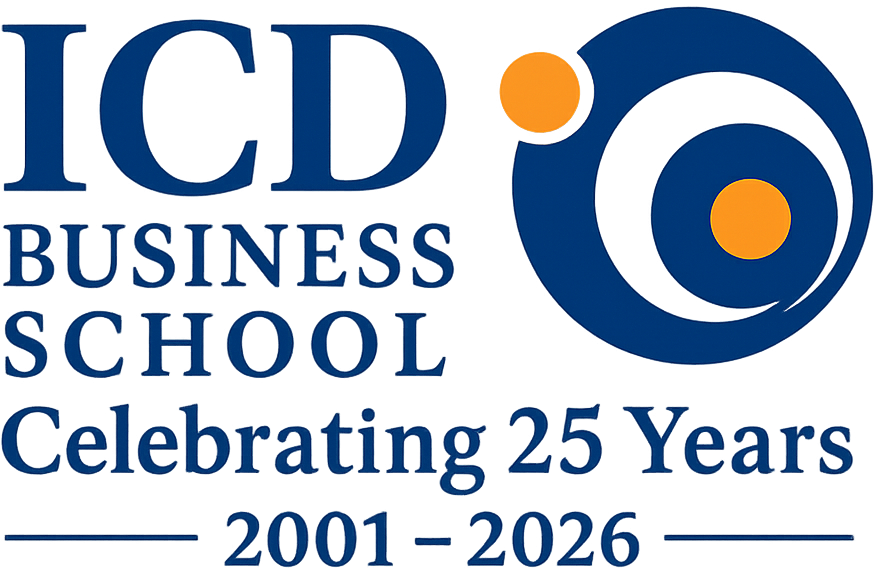Support for Students with Disabilities

It is the policy of ICD Business School to offer our courses to everyone who can attain the entrance requirements and to allow open access onto our programmes to all applicants. ICD supports the participation of learners with disabilities on all of their courses. In order to achieve an inclusive educational platform, alternative arrangements can be made by assessment designers (e.g. module lecturers) to accommodate different learning needs. It is the policy of ICD Business School to grant Reasonable Accommodations as per QQI policy Assessment and Standards and also with regard to the European Standards and Guidelines.
ICD has an open door policy when it comes to helping an supporting all of our students. If you are in any way in need of assistance or further information regarding special educational needs, disability supports, or reasonable accommodations, please do not hesitate to contact Joyce (the Registrar) or June (the Student Liaison Manager), who will provide you with every possible support to assist you in your studies at ICD. Any information you provide about yourself in this regard will be kept in the strictest confidence to ensure your privacy.
ICD’s policy on supporting students with special learning needs is continuously updated based on the feedback ICD receives from students. In preparing this policy, extensive resources have been referred to including:
-
- DAWN (Disability Advisors Working Network): Everything you wanted to know about Reasonable Accommodation and supporting students with disabilities but nobody bothered to tell you… (2013)
- AHEAD and Higher Education Authority, ‘Charter for Inclusive Teaching and Learning’ (2013)
- DARE: Disability Access Route to Education Handbook (2018) available at
http://accesscollege.ie/wp-content/uploads/2017/02/Dare-2019-Handbook-Web.pdf - The Equal Status Act 2004
- Disability Act 2005
If you wish to provide any feedback to ICD on we can improve this policy then please contact the Head of Academic Development by email to jason@email.icd.ie
Definitions of Disability:
Definition of disability is a ‘physical or mental impairment which has a substantial and long-term adverse effect on someone’s ability to carry out normal day to day activities’.
The Equal Status Act 2004 defines a disability as;
-
- The total or partial absence of a person’s bodily or mental functions, including absence, malformation, or disfigurement of the person’s body.
- A diagnosed chronic or potentially chronic disease.
- A condition or malfunction which results in a person learning differently from a person without the condition or malfunction or a condition which affects a person’s thought processes, perception of reality, emotions or judgements or which results in disturbed behaviour.
- In the context of providing reasonable accommodations, a disability or illness must be long term, generally it must last more than a year.
It may include:
- candidates with known and long-standing learning difficulties (e.g. dyslexia)
- candidates with physical disabilities, permanent or temporary
- candidates with sensory impairment
- candidates who have difficulties at, or near the time of assessment that may have affected their performance in the assessment.
Access to the ICD Building:
ICD is fully accessible for students with disabilities. ICD Business School is based in Wicklow House, Dublin 2. The building is fully compliant with all disability legislation (Disability Act 2005) allowing for access to all facilities in the building (classrooms, restrooms, and different floors of the building via the elevator). ICD operates a Loop Induction System for the aurally impaired in its lecture halls and administration offices. As a small college, ICD is open to all student requests and we do our utmost to provide for and accommodate for all students’ diverse needs.
Reasonable Accommodations for Learners with Special Learning Needs or Disabilities
Reasonable Accommodation: the provision of additional supports, facilities, resources or amendments to assessment tasks and activities to enable a learner with a disability or specific learning need to have a comparable opportunity to demonstrate attainment of learning outcomes as any other learner.
Students are encouraged to contact lecturers at any time to discuss any specific learning needs they may have that may qualify them for alternative assessment arrangements. ICD follows QQI (2013 section 2.2.10), which states that “some learners with disabilities may be unable to demonstrate their achievement of the intended learning outcomes through conventional assessment tasks…reasonable accommodations will therefore need to be made to deal with issues that would otherwise prevent such learners from demonstrating their achievement.” These reasonable accommodations are defined by QQI (ibid) as follows: “adapting the assessment approach, not with diluting the standard of learning to be attained, interfering with or amending the intended learning outcomes. Assessments which involve reasonable accommodations should be consistent with those which do not.”
A Reasonable Accommodation will allow learners to show what they know and do without changing the integrity or the demands of the assessment, for example by using a reader or scribe. Reasonable Accommodation is approved before an examination or assessment and they allow candidates/learners with special educational needs, disabilities or temporary injuries to access the assessment.
Reasonable Accommodation Procedures:
- Learners seeking a Reasonable Accommodation must inform the Registrar’s Office upon registration with ICD Business School.
- Reasonable Accommodations cannot be applied retrospectively (e.g. after an assessment has been completed)
- ICD Business School is aware of its responsibilities under GDPR and relevant legislation. It may however have to disclose to certain members of staff a learner’s disability or long-term illness if a Reasonable Accommodation is requested. But this is on a need-to-know basis only.
- ICD Business School will where reasonable and possible absorb all costs in relation to Reasonable Accommodations.
- It is the responsibility of the learner and or their family to apply for a Reasonable Accommodation.
- Only Medical documentation from a verifiable source (Registered Medical Practitioner/Consultant) will be accepted as proof of the disability or long-term illness.
Educational Needs Assessment
Students with special needs (specific learning needs) are requested to confidentially disclose the nature of their needs at the beginning of the academic year, and, where appropriate, to provide supporting documentation. The primary point of contact in this regard is the Registrar (Ms Joyce Zhao) who both coordinates the assessment process (with the assistance of externally sourced needs assessors) and coordinates internal notifications to lecturers and other staff, as appropriate, to ensure staff are aware of specific student learning needs and to ensure that reasonable accommodations are made to teaching, learning, and assessment strategies as appropriate to ensure all learners have equal (or equivalent, with reasonable accommodations provided) learning (and demonstration of learning) opportunities. Where possible, the college will establish appropriate alternative arrangements, either to access classes or in the assessment of coursework and examinations. As external approval may be required, late notification may result in the college being unable to accommodate certain special needs, but ICD endeavours to accommodate every student’s needs in every case wherever practically possible. All records will be treated in strict confidence.
Examples of Reasonable Accommodations Available to Students Who Qualify:
The following adaptations are examples of what may be considered for the purposes of facilitating reasonable accommodations, as long as they do not impact on any competence standards being tested:
- adapting assessment materials;
- adaptation of the physical environment for access purposes;
- adaptation to equipment;
- assessment material in an enlarged format or Braille;
- assessment material on coloured paper or in audio format;
- changing or adapting the assessment method;
- changing usual assessment arrangements;
- extra time, e.g. assignment extensions;
- language modified assessment material;
- practical assistant;
- prompter;
- providing assistance during assessment;
- reader;
- scribe;
- use of assistive software;
- using assistive technology;
- use of CCTV, coloured overlays, low vision aids;
- use of a different assessment location;
- use of ICT/responses using electronic devices.
It is important to note that not all of the Accommodations (as above) will be reasonable, permissible or practical in particular situations. The learner may not need, nor be allowed the same accommodation for all assessments. Learners will be fully involved in any decisions about accommodations. This will ensure that individual needs can be met, whilst still bearing in mind the specified assessment criteria for a particular qualification. As the needs and circumstances of each learner are different, ICD Business School will consider any request for a reasonable adjustment on a case by case basis. Evidence of need will be required
For more information, please take a look at our student handbook: See Student Handbook
